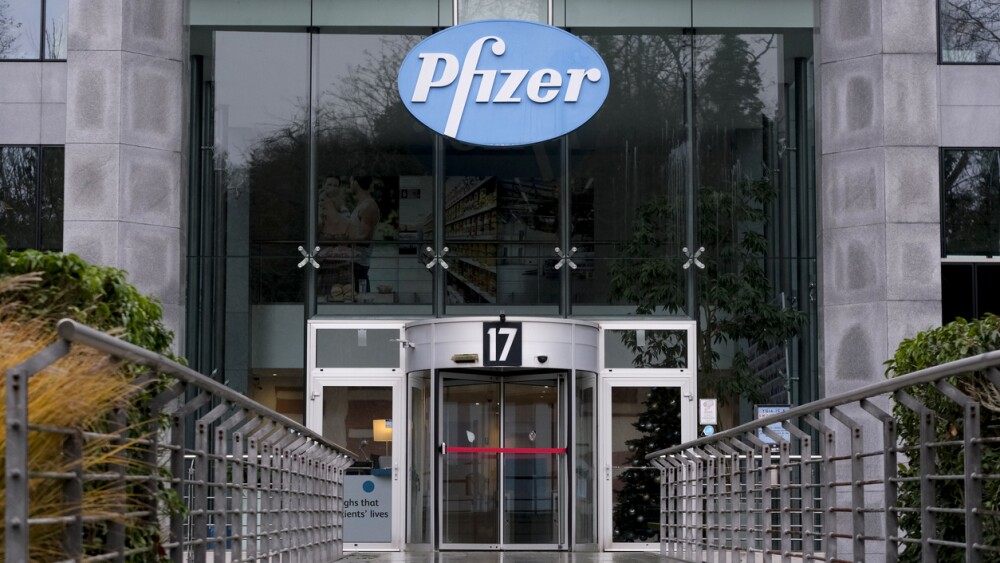- Designation highlights continued regulatory progress and recognizes the potential for radiprodil to address the unmet need to a significant extent in GRIN-related neurodevelopment disorder
NEW YORK, April 1, 2025 /PRNewswire/ -- GRIN Therapeutics, Inc., a leader in the development of therapies to treat serious neurodevelopmental disorders, today announced that the European Medicines Agency (EMA) has granted Priority Medicine (PRIME) designation to radiprodil, the company’s investigational, potent negative allosteric modulator selectively targeting the N-methyl-D-aspartate receptor subtype 2B (NR2B or GluN2B), for the treatment of GRIN-related neurodevelopmental disorder (NDD). This decision follows the recent announcements that radiprodil was awarded Breakthrough Therapy designation for the treatment of seizures associated with GRIN-related NDD with gain-of-function (GoF) mutations and Orphan Drug designation for the treatment of GRIN-related NDD by the U.S. Food and Drug Administration (FDA) in February and March 2025, respectively. The company remains on track to initiate a global pivotal Phase 3 clinical trial for radiprodil for the treatment of GRIN-related NDD in mid-2025.
“The decision by the EMA to award PRIME designation highlights the global unmet need for treatment options for individuals suffering from GRIN-related NDD and our efforts to develop the first selectively targeted treatment for this condition,” said Michael A. Panzara, MD, MPH, Chief Medical Officer at Neurvati Neurosciences and GRIN Therapeutics. “We look forward to continuing to work with global regulatory authorities and the patient community to achieve this goal.”
PRIME designation is granted by the EMA in recognition of priority medicines that have demonstrated the potential to target an unmet need to a significant extent. PRIME provides enhanced support for the development of therapeutic candidates in order to help optimize development plans and speed up the evaluation process so medicines can reach patients earlier. This designation provides drug developers with several benefits, including early appointment of the Committee for Medicinal Products for Human Use (CHMP) Rapporteur, which enables discussion regarding preparation of the marketing authorization application (MAA), enhanced interaction and early dialogue with the EMA.
GRIN Therapeutics, which is backed by a $200M capital commitment from Blackstone Life Sciences, remains on track to initiate a global Phase 3 pivotal trial for radiprodil in GRIN-related NDD in mid-2025. The Phase 3 trial will aim to evaluate the impact of targeted treatment on core aspects of the disease, including seizures, behavioral abnormalities and functional outcomes.
About GRIN-related neurodevelopmental disorder
GRIN-related neurodevelopmental disorder is a family of rare, genetically defined pediatric neurodevelopmental disorders caused by mutations in GRIN genes. While symptoms of GRIN-related neurodevelopmental disorder can present as early as infancy, a diagnosis is often not confirmed until age two or later when a child fails to reach developmental milestones. Individuals may experience developmental delay, intellectual disabilities, epilepsy, muscular hypotonia, movement disorders, spasticity, feeding difficulties and behavioral problems. There are currently no approved therapies for GRIN-related neurodevelopmental disorder.
About Radiprodil
Radiprodil is an investigational, selective and potent negative allosteric modulator of the N-methyl-D-aspartate (NMDA) receptor subtype 2B (NR2B or GluN2B) that has received Breakthrough Therapy designation and Orphan Drug designation from the U.S. Food and Drug Administration (FDA) as well as Priority Medicines (PRIME) designation from the European Medicines Agency (EMA). In in vitro and in vivo preclinical models, radiprodil has been shown to potently and selectively modulate GluN2B. In 2024, data from the Phase 1b Honeycomb study of radiprodil in pediatric patients with GRIN-related neurodevelopmental disorder and confirmed Gain of Function (GoF) mutations showed that patients in the qualifying seizure cohort experienced a median reduction of 86% in countable motor seizure (CMS) frequency compared to baseline, with 5 of 7 patients seeing greater than 50% reduction. Clinicians and caregivers generally assessed patients as improved clinically over the course of the study regardless of the occurrence of seizures as measured by Clinician and Caregiver Global Impressions of Change (CGI-C and CaGI-C) and the Aberrant Behavior Checklist – Community (ABC-C) scales. In addition, the drug appeared to be generally well tolerated. Adverse events most commonly observed were those associated with infections or underlying disease symptoms. Three patients experienced a serious adverse event associated with infection; all were assessed as unrelated to radiprodil.
Radiprodil is also being developed for the treatment of tuberous sclerosis complex (TSC) and focal cortical dysplasia (FCD). In vitro analysis of brain tissues extracted from both TSC and FCD lesions has shown enhanced GluN2B NMDA expression supporting the potential ability of radiprodil to control seizures in these conditions. RAD-GRIN-201, also known as the Astroscape study, is an ongoing, open-label Phase 1b/2a trial assessing the safety, tolerability, pharmacokinetics (PK), and potential efficacy of radiprodil in participants with TSC or FCD type II.
About GRIN Therapeutics
GRIN Therapeutics is dedicated to the research and development of precision therapeutics for pediatric neurodevelopmental disorders with the goal of bringing hope to patients and caregivers. Late last year, GRIN Therapeutics reported promising topline data from a Phase 1b/2a clinical trial (the Honeycomb Trial) evaluating radiprodil in GRIN-related neurodevelopmental disorder in patients with GoF variants, leading to the decision to advance to a Phase 3 trial. The company has an additional ongoing clinical trial to evaluate radiprodil for the potential treatment of tuberous sclerosis complex (TSC) and focal cortical dysplasia (FCD) type II. GRIN Therapeutics is an affiliate of Neurvati Neurosciences, a portfolio company of Blackstone Life Sciences (BXLS). For more information, please visit www.grintherapeutics.com
About Neurvati Neurosciences
Neurvati Neurosciences, a portfolio company of Blackstone Life Sciences, identifies and advances the development of high-potential drug candidates across the neuroscience landscape. Neurvati employs a collaborative model that establishes fit-for-purpose affiliate companies, aligning dedicated resources with long-term strategic capital to catalyze innovative treatment options in areas of unmet need. Neurvati’s team of experienced operators and drug developers seeks opportunities to challenge current treatment paradigms and make a difference for patients suffering from a wide range of neurological and psychiatric disorders. For more information, please visit www.neurvati.com
About Blackstone Life Sciences
Blackstone Life Sciences is an industry-leading private investment platform with capabilities to invest across the life cycle of companies and products within key life science sectors. By combining scale investments and hands-on operational leadership, Blackstone Life Sciences helps bring to market promising new medicines and medical technologies that improve patients’ lives and currently has more than $12 billion in assets under management.
Corporate Contact
Elliott Ruiz, MBA
+1 201.674.5417
SOURCE GRIN Therapeutics Inc.





